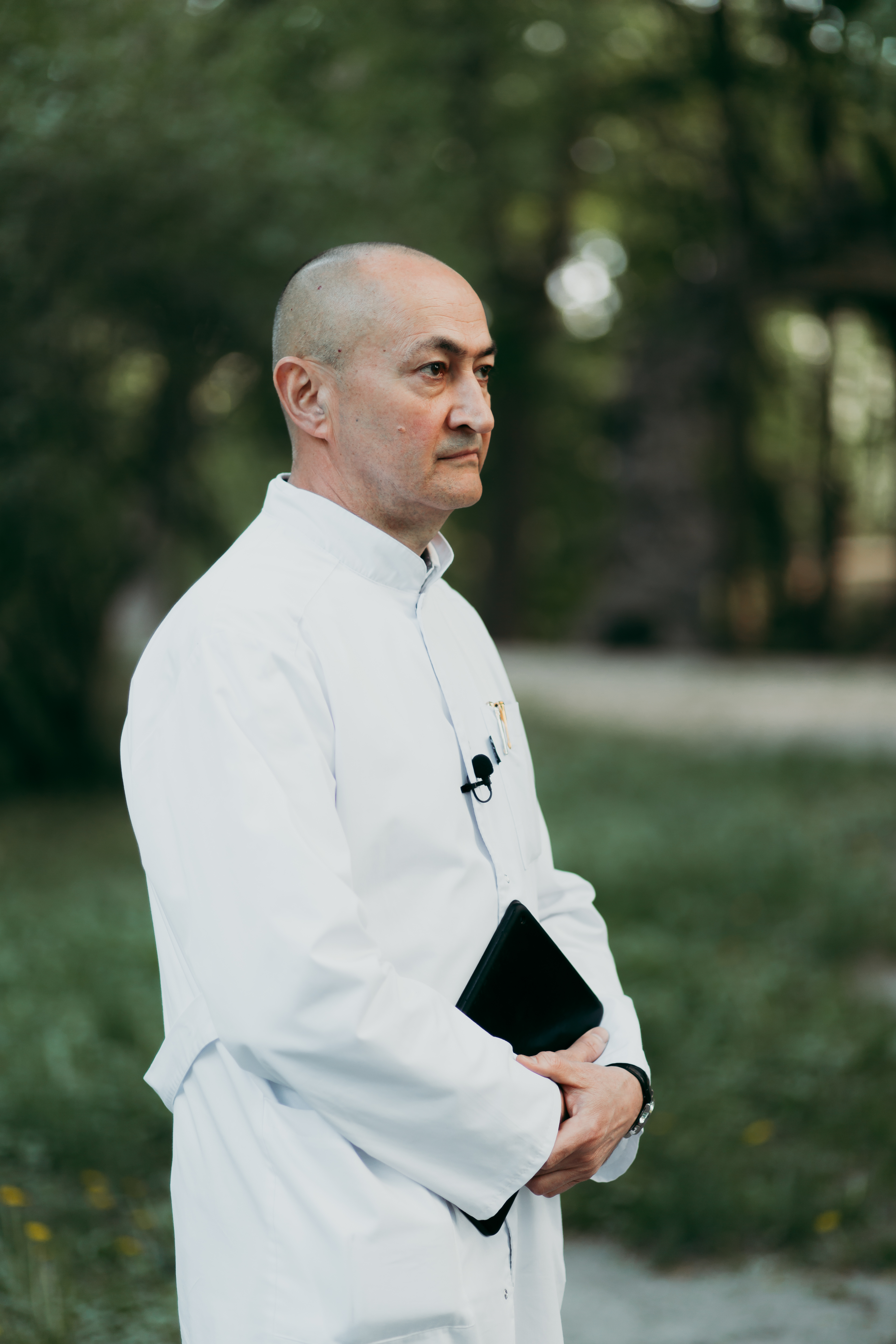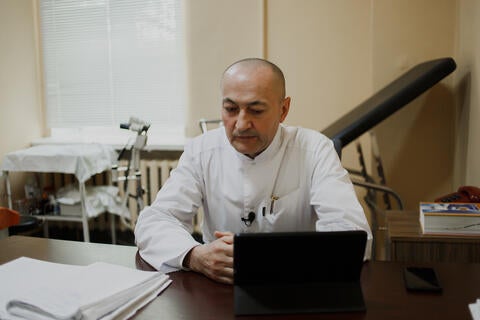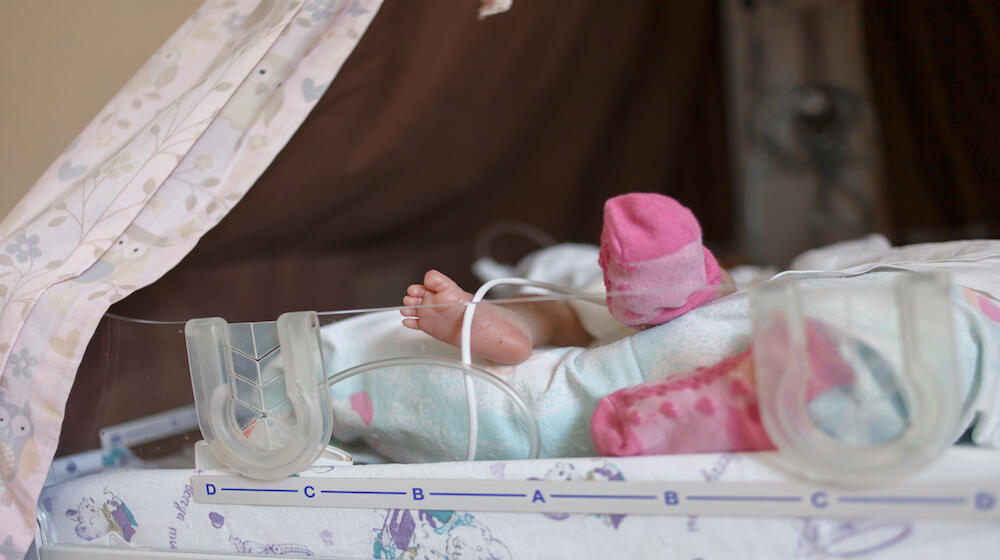When Vika left Kyiv to help her parents out of Mariupol, she didn’t expect to end up delivering a baby in a shelter.
The war in Ukraine has disrupted the lives of millions of women. An estimated 265,000 pregnant women are facing innumerable challenges given their unique health status. Pregnant displaced pregnant women and their unborn children are uniquely vulnerable to higher rates of death, disease and mental health challenges that can persist after birth.
Many maternity hospitals and perinatal centres are forced to move their delivery rooms and wards to basements, but in many cities, women do not even have access to medical care. Many are forced to give birth in makeshift shelters in basements and subway stations. Equipment, facilities and qualified providers are scarce.
Given the deteriorating health conditions for women, Dr Mykola Didyk, obstetrician-gynaecologist, at one of the perinatal centres in Kyiv, decided to leave his number for a free consultation at an online platform aimed at patients who do not have access to medical facilities.
One day, he saw a message from a young woman, Vika, a children's fashion designer, asking for his help - and decided to take the apply.

Vika had left Kyiv one month into the war to help take her parents out of Mariupol when the city came under heavy shelling. However, her parents were killed and Vika then found herself alone finding refuge in a shelter with hundreds of people, including 35-week pregnant Oksana*.
Oksana was in a bad condition and needed urgent medical attention. With no possibility of getting out to seek help and medical assistance without risking their lives, Vika knew that if she didn’t act, both mother and unborn baby might not survive.
She remembered seeing Dr Didyk’s contact details on the platform.
She immediately wrote to him and explained the situation. Dr Didyk informed her that she will have to deliver the baby a few hours later and that he will give her the needed guidance.
Vika did not know what to do – she did not have the required medical skills and the basement was not good enough to live in let alone give birth in. But she didn’t have much time to think about all of this, as the next day, Oskana’s water broke.
“Something splashed - she wrote to me,” recalls Dr Didyk of Vika’s message on the day of the delivery. “The delivery was not easy: it turned out to be a breech birth,” he adds.
The doctor gave Vika directives on how to navigate through this difficult and sensitive delivery. During the delivery, Oksana lost consciousness and pressure mounted on Vika.
"Then I told her that if there was nothing at hand, the umbilical cord could be tied with laces or a woollen thread,” he continues. “She was terrified but at the same time showed bravery and humanity like no other. She had no choice. The umbilical cord also had to be cut so I said that if there was no knife available, she should use a piece of broken glass.”
Vika was exhausted but both mother and child were not out of the woods yet and needed her. The mother began to bleed. Vika kneeled on her stomach with one hand on the uterus and the second on the solar plexus to reduce the blood loss.
“She had to stand like this for several hours until finally, rescuers reached her,” he adds.
What Dr Didyk did not know at the time was that Vika was herself sick and had a fever.
“After the rescuers came for help, they took her, Oskana and the baby to the hospital. Vika was injured and required an operation. She was even placed on artificial ventilation for a few days,” he says.
He was amazed by the strength and resilience of this young woman, who despite her world falling apart and being at risk herself, selflessly helped those who needed her and found vigour to keep going.

For pregnant women lacking essential maternal health care, childbirth can end in tragedy. To date, UNFPA has distributed over 59 metric tons of reproductive health supplies that can be used to ensure safe delivery whether in hospitals or in unhygienic locations such as basements or shelters, to 26 hospitals in war-torn cities across Ukraine. This is enough to meet the priority reproductive health needs of 4.5 million persons, including women who may need emergency obstetric care.
Many women like Oksana find themselves in similar situations to that of Oskana, but not many are lucky to find someone like Vika and Dr Didyk.
Video story:
*Name changed for protection reasons


